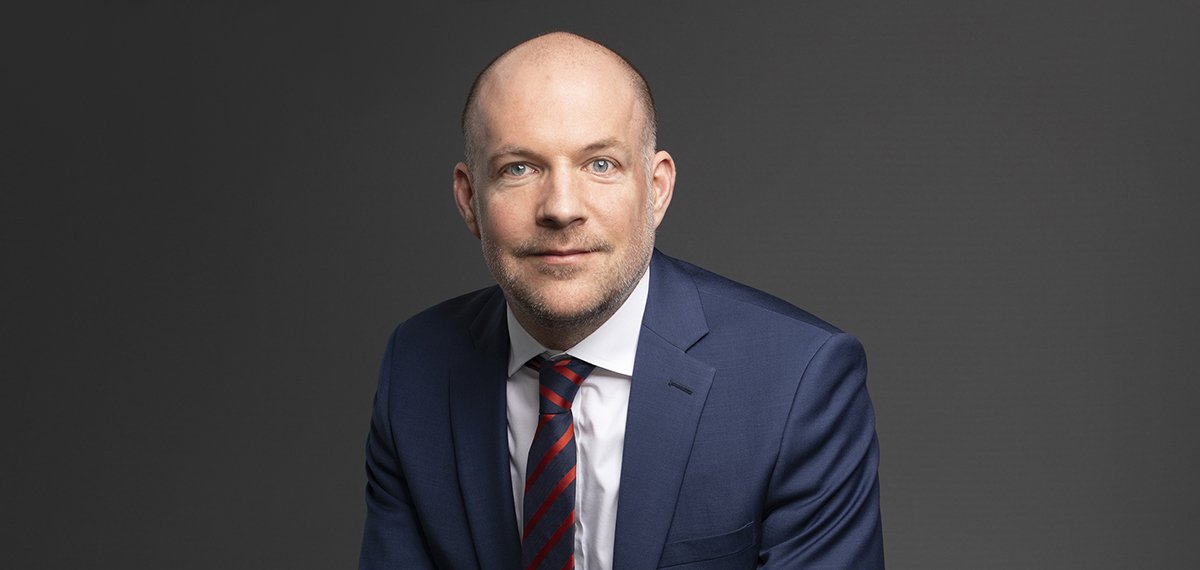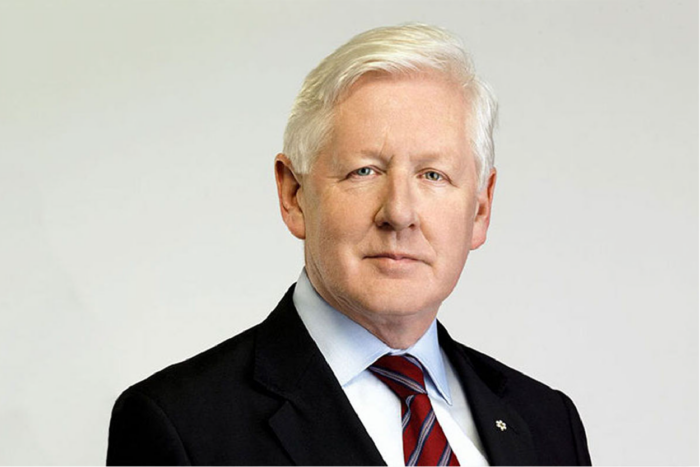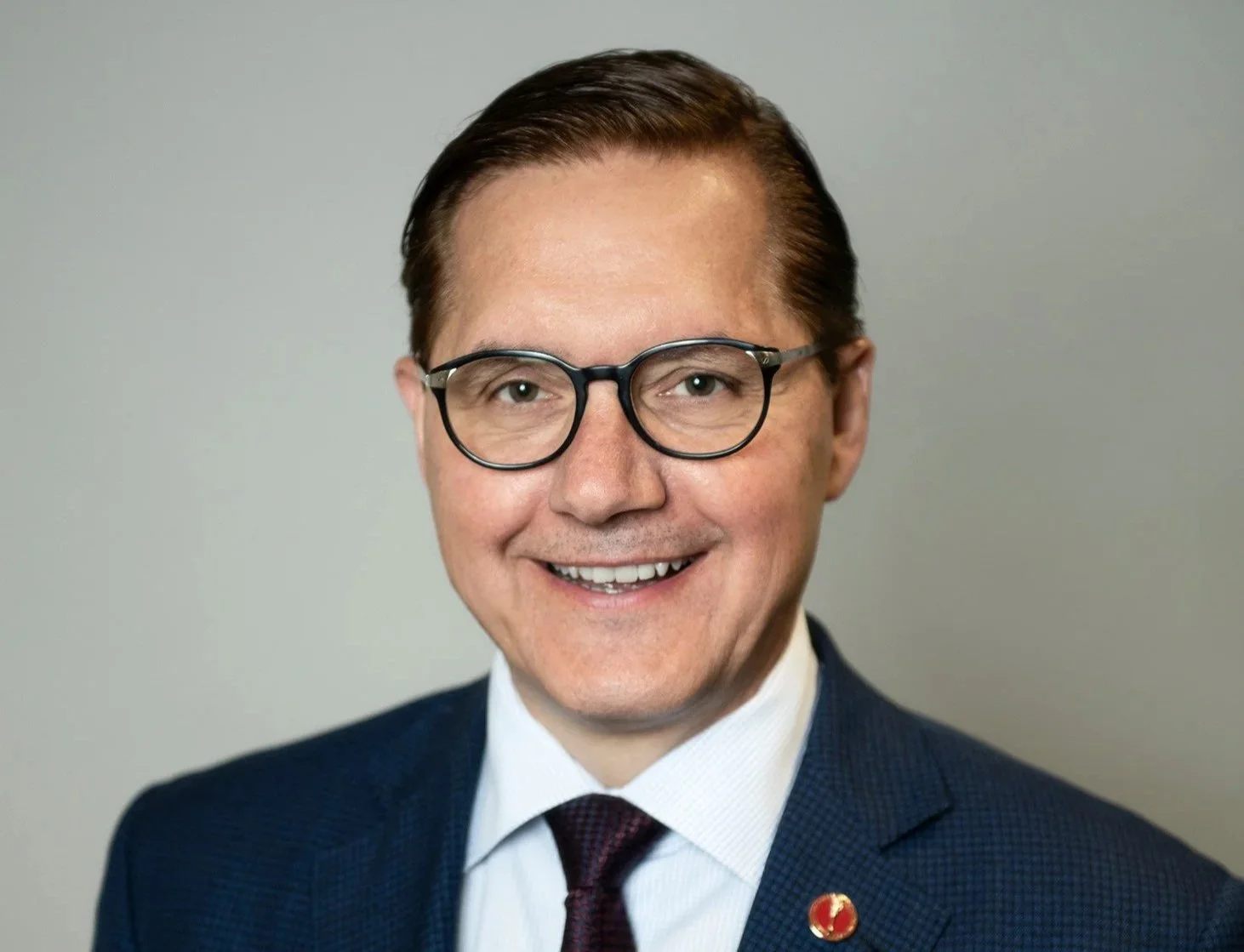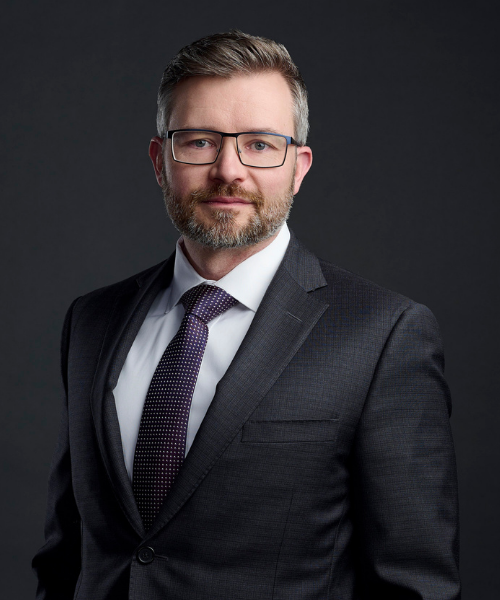Turnbull: Sabia appointment signals ‘seismic shift’ in Ottawa
New PCO Clerk Michael Sabia ‘is not afraid to make decisions and is focused on execution once he gets the green light,’ says Lisa Raitt. / UNIVERSITY OF TORONTO PHOTO
Hydro-Quebec CEO Michael Sabia wasn’t the obvious choice to take over as the Clerk of the Privy Council, but it shouldn’t be surprising, say political observers.
Prime Minister Mark Carney certainly wasn’t looking at the current deputy minister cadre and asking who’s next in line, Lori Turnbull, a professor of political science at Dalhousie University, told Means & Ways in an online interview.
“When you think about it from Carney's perspective, here is somebody who's taking a very different approach to leadership,” she said. “Carney is putting together a circle of people around him who he trusts, particularly on files related to economic growth.”
Turnbull said Carney is forming a “triumvirate” comprising himself, Sabia, and Marc-André Blanchard. “They are going to take a very tight, centralized approach to decision-making. There is a like-mindedness and a sense of consensus between them on what the key issues are.”
Sabia will take office July 7, replacing John Hannaford, who is set to retire after three decades in federal service. The move signals the Carney government’s intent to accelerate its ambitious nation-building agenda with seasoned leadership at the centre of government.
Speed, implementation, results
This approach is expected to lean heavily on Sabia’s private-sector sensibility: a focus on speed, implementation, and results — in other words, less process, more execution.
Sabia’s resume includes former Deputy Minister of Finance, Chair of the Canada Infrastructure Bank, and President of the Caisse de dépôt et placement du Québec (CDPQ), where he rebuilt the pension giant into a global powerhouse. He held the top job at BCE Inc. and was the CFO at Canadian National Railway.
Turnbull anticipates a seismic shift in how the federal public service operates under Sabia and Carney — less about consulting and more about making things happen far more quickly than the public service is used to.
“‘How can we get approvals done and money flowing,’ and ‘don't take a whole bunch of time with everything’” she said. “It's coming at a time where culturally for the public service as an organization and for lots of organizations, emphasis has been on making sure everybody's included in the conversation and making sure everyone has had a chance to make their voice heard. … Sabia might just say, ‘Nope, here's a streamlined way of doing that, you have a short period of time if you're gonna walk that around. I'll see you in an hour.’”
PPPs
Carney has signaled that private sector partnerships will be crucial, not just for financing major initiatives but also for building broad-based support.
“The more you get people from the business community saying, ‘We believe in what Mark Carney is doing,’ the more political capital he builds,” Turnbull said. “If a lot of people are saying, ‘Actually this is getting somewhere,’ and ‘We're delighted to announce that we're doing this project,’ and ‘This is going to create x amount of dollars, x amount of jobs,’ you know, ‘We're going to be able to do this in eight months,’ well, it starts to become harder to fight against progress. The business community will help them inform that kind of consensus and to actually help expedite some of these projects.”
According to Turnbull, Carney will expect the public service to be execution-focused. “He's not asking for advice on how to lead. He's asking for information so he can make decisions.”
This will suit Sabia’s leadership style — non-dogmatic, familiar with crisis-mode decision-making from his COVID-era public service — at a time of acute political and economic pressure. The U.S. under Trump has moved sharply inward. Protectionist tariffs, climate policy rollbacks, and rhetorical threats against allies have redefined the geopolitical context. For Sabia, Canada’s response must be immediate and unapologetically bold.
‘No way’
“Trump wants to break our confidence. My response: No way,” Sabia told the Canadian Club of Montreal in February, during a forceful keynote as Hydro-Québec CEO. “We cannot wait and let others decide the rules of the game for us.”
That speech now reads like a preview of his governing philosophy — one steeped in urgency, pragmatism, and a belief in Canadian capacity.
“By continuing to advance in Canada, we’ll be aligned with the rest of the world. It’s the United States that will be offside. And that’s our opportunity. It’s the moment to cement our competitive advantage, to take the lead,” he said.
Sabia’s June 9 remarks at Intersect 2025 added further clarity to his vision — and his frustrations.
‘Stack of pancakes’
“We’ve got a lot to fix on the regulatory side,” he said, describing Canada’s permitting and emissions rules as “a stack of pancakes” that discourage foreign investment and stifle urgency.
“We need to stand back and say, ‘There’s got to be a simpler, better way.’”
Turnbull said the public service’s biggest challenge will be figuring out how to get existing processes to function more quickly while at the same time building the necessary partnerships and gathering the required information. “Some of these consultations have to happen,” she said. “Truncating something from five years to two years is easier said than done.”
The government’s new One Canadian Economy Act would allow major nation-building projects to receive federal regulatory approval in two years instead of five.
As Deputy Minister of Finance from 2020 to 2023, Sabia helped shape Canada’s pandemic-era economic response and laid the groundwork for the post-crisis shift toward clean growth and industrial strategy. He’s long argued Canada must lead in its "bedrock sectors," like mines, AI, and clean energy.
Exit the turbulence
“Build and grow our companies in these sectors, in the country’s big projects,” Sabia said in February. “It’s the only way to exit this turbulence as winners, more resilient and more prosperous.”
Lisa Raitt, vice chair of global investment banking at CIBC Capital Markets, told Means & Ways Sabia is a well-known leader in Canada’s energy transition. “He’s not afraid to make decisions and is focused on execution once he gets the green light,” she said. “The mantra is ‘advise fearlessly and implement faithfully.’”
Educated at Yale University (Master of Philosophy in Political Economy) and the University of Toronto (Bachelor of Arts), his leadership extends beyond borders. He has served on the UN’s Net Zero Asset Owner Alliance, co-chaired the World Economic Forum’s infrastructure and development working group, and helped launch Canada’s G7 Investor Leadership Network on climate change and diversity.
In 2017, he was named an Officer of the Order of Canada for his contributions to business, finance, and public service.
Now as Clerk, Sabia returns to his roots — the public service he first joined more than four decades ago.
Turnbull said the Clerk’s role is three jobs: to be the secretary to cabinet, the Prime Minister’s deputy and the head of the public service. She believes Sabia will lean more to being Carney’s deputy minister, advising him directly and as part of his inner circle, while deputy clerks take on the public service leadership roles.
“Prime Minister Carney asked me to take on this role at a time when the country is facing some unprecedented challenges,” Sabia said in a statement to media. “In that context, I am joining the federal government to tackle this challenge head on.”






